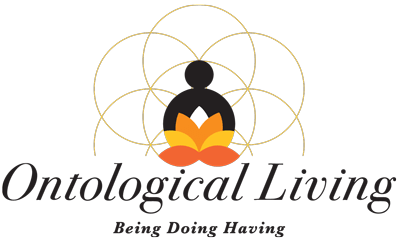Building Trust through Mindfulness
The Intimacy and Freedom of Presence: On Building Trust through Mindfulness
Mindfulness is a willingness to integrate the stirrings of the mind-body complex (the nervous system) into a powerfully attentive presence.
Sitting and attending to the breath, and accepting whatever emerges—random thoughts, troubling or exhilarating emotions, memories, itches and tickles—builds attention while cultivating the capacity to accept what is there.
But what is there? Who or what are you accepting? You are accepting the reality of your self, just as you are, and just as you manifest in that precise moment. You are listening in a more expansive way and hearing thinking think itself.
Practiced over a lifetime, this daily ritual builds a powerful sense of trust in your capacity to face your self, which amounts to, facing the world. When you can bring a powerfully attentive “stillness” to your relationships, you can learn to hear and see more of what is possible, and this allows you to better navigate the possibilities that often remain obscured in the background. This is no more mysterious than the capacity to bring better posture and more supple physical energy to your life through exercising your muscles and your cardiovascular system. With a stronger body, you can do more, lift more, and endure more. Mindfulness practice works out the muscle of attention, which allows one to become more intimate with her deepest intentions.
In facing the self, one faces the world.
Why? Because the self is not alone, and it’s not some independent thing that’s driving the vehicle of the body—the self is embodied relationality: the self is a point of focus in a field of relations. Paradoxically speaking, autonomy, freedom, and trust emerge out of a sincere reckoning with the realization of interdependence and relationality.
Authentic trust—the kind that is built in full awareness of the risk of betrayal, but full faith in the power of commitment—requires adept presence, active listening, and sincere care. When we practice mindfulness, we practice active listening; some facet of the attention attends to the stirrings of the mind and body, and therefore, is not fully identified as this negative thought or this anxious anticipation of the future. So the integration that takes place is one of understanding that there is a depth of attention and patience that can choose what it avows and what it disavows. In Mindfulness practice, one facilitates self-integration, and this sort of integrity builds relationships of care, trust, and commitment.
Active listening, active trust, and active living are facets of an authentically lived life.
But being “active” does not mean reinventing the wheel, or denying the reality of what you feel and think and do. Being active means patiently hearing who you are in relation to others, which allows you to better choose how to integrate the elements of that relationality into a dynamic whole.
Mindfulness is simply the personal and intimate practice of those skills: listening, hearing, accepting, and attending to the conditions that have been established this very moment.
Recently, in the globalizing, post-industrial digital age the issues of privacy and intimacy have taken center stage. We enjoy quick access to more information than we’ve ever had in the past, and yet we hear each other less. We are more interdependent than we’ve ever been, but we feel alienated and alone. The liberal worldview that prizes human rights, freedom, and autonomy has been embraced in most parts of the globe, and yet, the white noise of manipulative advertising, superfluous data, breeches in security, and the watchful eyes of cameras threaten to rob us of our private lives. One might even cynically argue that private lives simply do not exist.
We should think about what that means. In any fascist political system or worldview, privacy is kept to a minimum. Without privacy we cannot attend to and build on the intentions that move our individual (but always relational) projects forward. Our projects are hijacked by a central order that imposes its grip through power and fear, which spawns a cynical and mistrusting society.
I would like to suggest that mindfulness—insofar as it allows one to hear oneself and to come into an intimate relationship with one’s meaningful intentions and aspirations—carves out a private space within the relational matrix that makes up a self. It is this adeptly intimate private space that allows us to actively participate in the public world. By “actively participate,” I mean that we can more powerfully make non-coerced and non-manipulated choices, and in this sense, choose how we want to articulate our lives.
Summary:
§ The so-called private life is a cultivating ground out of which we can settle into the unique and dynamic clearing that each one of us is. § Building trust requires building self-trust, and that requires cultivating intimacy with one’s Self.
§ Mindfulness practice allows us to listen to ourselves—and not just our ideas, but also our feelings, our impulses, and our bodies, with their aches and pains and exaltations. We come more richly into contact with the whole mind-body complex.
§ When we can better listen to ourselves, we can listen more richly to others: we can enhance and enliven our relationality.
§ When we can settle into ourselves, we can hear our own unique voices—the sorts of voices that have an intention, and can make a commitment.
§ But this is not an issue of getting to know something fixed or already there. Rather, this is about getting to appreciate the dwelling that this dynamic mind-body complex is: this is about integrating the self by quieting the noise that keeps us torn in a thousand directions.
§ Freedom, by this understanding, is the capacity to attend to oneself and to another, and mindfulness practice helps cultivate a rich attention span.
What conversation are you bringing to the ideas you just read?
©2016 Ideal Coaching Global, Kevin Perry & Bettie J. Spruill









Wow, this is great stuff!
Thank you, Jason!